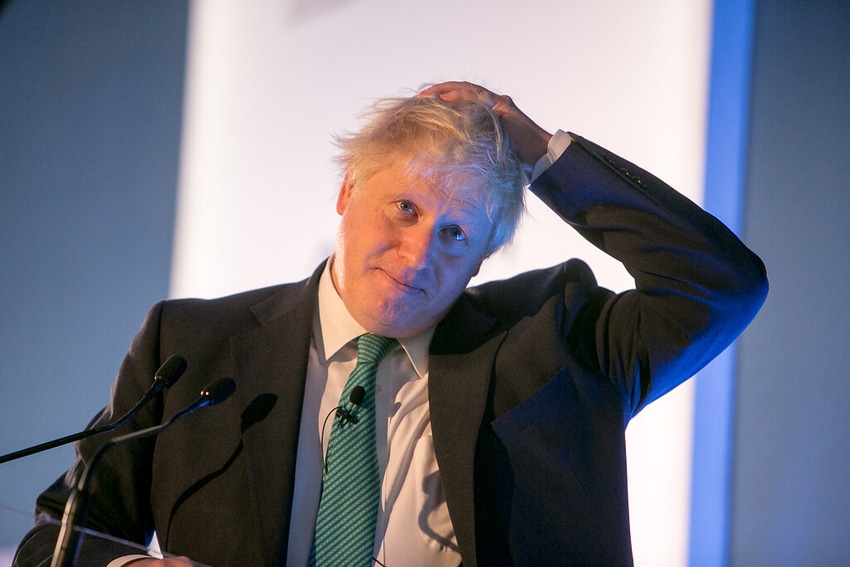Tory leadership favourite makes 2025 FTTH commitment
Former-Foreign Secretary and the favourite to be the UK’s next Prime Minister Boris Johnson has undercut DCMS and Ofcom commitment for full-fibre by eight-years.
June 17, 2019

Former-Foreign Secretary and the favourite to be the UK’s next Prime Minister Boris Johnson has undercut DCMS and Ofcom commitment for full-fibre by eight-years.
Writing an op-ed piece for The Daily Telegraph, Johnson (BoJo) has suggested his government would commit to delivering fibre-to-the-home (FTT) broadband connectivity to 100% of the UK population by 2025, beating out current commitments by eight years.
“Think what we could achieve if the whole country had the same lightning access to this essential tool of progress,” BoJo stated. “If the Spanish can do it, why can’t we? Let’s say goodbye to the UK’s manana approach to broadband and unleash full fibre for all by 2025.”
As it stands in the Future Telecoms Infrastructure Review (FTIR), the UK Government has targeted full-fibre broadband for all households by 2033. This might sound like a ludicrous amount of time, though it is the final 10% which is envisioned to be the most difficult. There has been progress in upgrading the UK from copper to fibre, though the UK does seem to be falling behind other European nations.
According to the latest statistics from the Fibre to the Home Council Europe, 1.5% of UK subscribers have adopted fibre services. The industry is suggesting 7% availability of fibre services, while the Government is targeting 15 million premises to be connected by 2025. Steps forward have been made, albeit smaller ones than the likes of Spain, Latvia, Lithuania and the Nordics.
The issue with connecting all of these homes is down to the commercial gain for the telcos. When you get to the rural regions of the UK, delivering FTTH, or even fibre-to-the-cabinet, is not commercially attractive. Not only do you have to worry about the raw materials, there is the complication of civil engineering and the difficulties of navigating the red-tape maze of local authority governance.
This is why the Government is not worried about the first 90% of UK premises, but it is the final 10% which everyone should be concerned over. To connect these final premises, the telcos would have to be encouraged with public funds, as the commercial gain is seemingly below-par.
“But when I mentioned another priority of mine – almost casually – those farmers smote their weatherbeaten hands together and roared their assent,” said BoJo. “They want better broadband. They are indignant at the current failure to provide it – and they are absolutely right.
“A fast internet connection is not some metropolitan luxury. It is an indispensable tool of modern life. You need it for your medical prescription, for paying your car tax, for keeping up with the news and with your family and friends. It is becoming the single giant ecosystem in which all economic activity takes place. It is the place you find bargains. It is the place you find customers.
“It is not only the place you can find a job. It is the means by which you can be interviewed, and your talents uncovered, without incurring the cost of a rail ticket. If your area has a truly fast broadband connection, that area will be a better place to live, to invest, to set up a business; and that area will have a better chance of retaining talented young people and allowing them to start-up businesses and bring up their families.”
Undercutting Government objectives is of course a good way for a leadership hopeful to gain column inches and woo party members, many of whom will live in the more affluent rural areas, but is it actually possible? BoJo has already faced criticism because of dubious claims, just think back to the £350 million a week savings which was emblazoned across the bus during the Brexit campaign.
Telcos can of course be coerced into getting on with their jobs faster than they would like to, but this is an arduous process; the telcos have become masters of stubbornness. And as you can imagine, BoJo has been light on details as to how this accelerated rollout would be achieved, simply stating it would require more government investment.
So here is the question; does BoJo genuinely believe he can speed-up the transition to a fibre diet, or is this another suspect claim which will lead to another member of the general public taking him to court?
About the Author(s)
You May Also Like








.png?width=300&auto=webp&quality=80&disable=upscale)


_1.jpg?width=300&auto=webp&quality=80&disable=upscale)


.png?width=800&auto=webp&quality=80&disable=upscale)